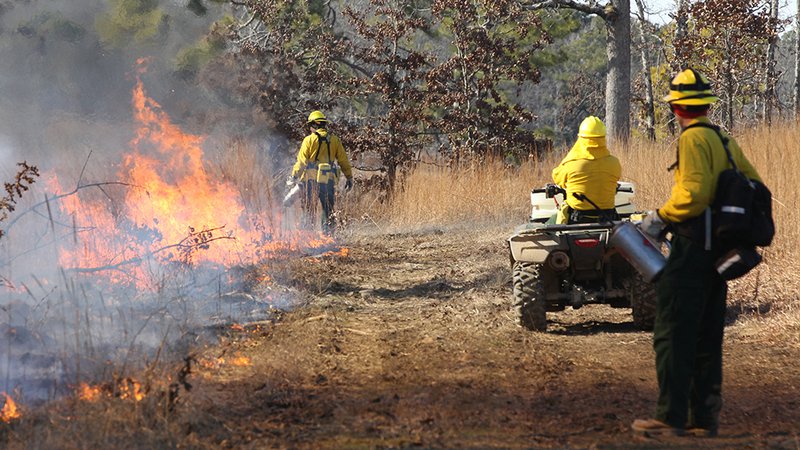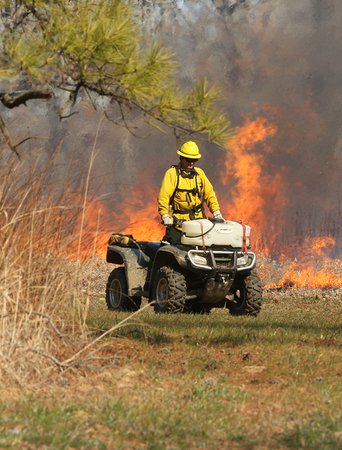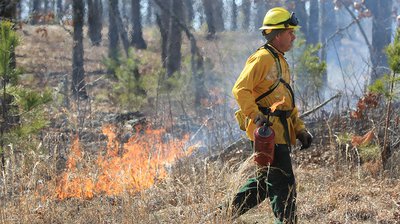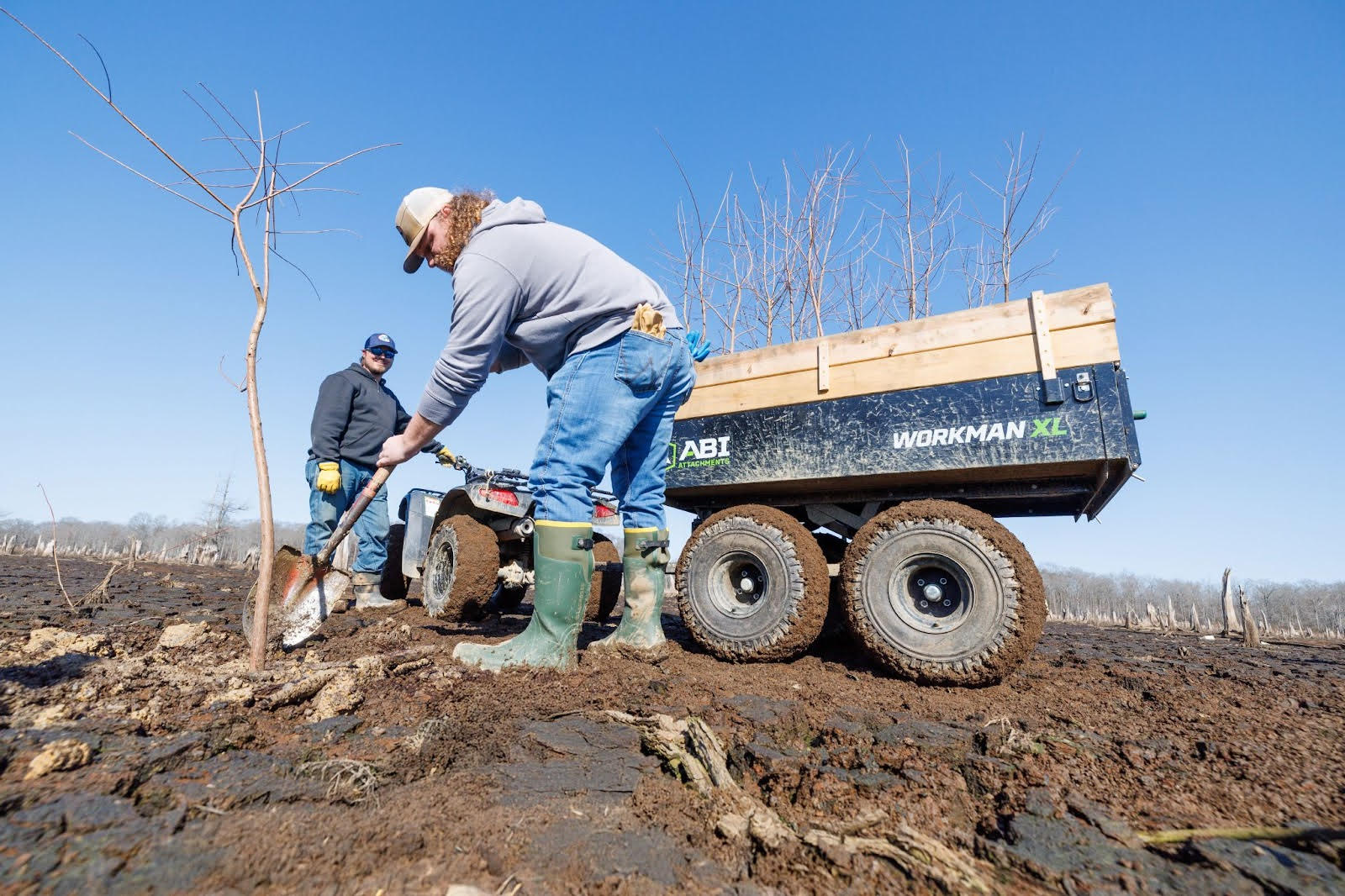Workshops teach landowners how to burn their way to better habitat
ON 01-20-2021

Jan. 20, 2021
Randy Zellers
Assistant Chief of Communications
COLUMBUS — The Arkansas Game and Fish Commission and Quail Forever are hosting special classes this February and March to teach landowners in southern Arkansas how to use fire to substantially improve wildlife habitat on their property.
The free in-person workshops have limited seating and will be coordinated to follow all social-distancing precautions listed by the Arkansas Department of Health. Registration is required through Eventbrite, an online scheduling program.

According to Clint Johnson, the private lands biologist at the AGFC who coordinates these classes throughout the region, fire is one of the best and least expensive tools landowners can use to increase the amount of grasses and seed-producing annual plants on their property but decades of suppression have left many landowners intimidated by its use.
“Prescribed fire is not only beneficial to wildlife management, but it is also a key component in timber production as well as increasing productivity in livestock production,” Johnson said. “The timing and size of burns also can be manipulated to produce different outcomes with respect to the composition of the grasses and plants stimulated by the technique.”
The first set of workshops will focus on the basics of how fire is used, what equipment is needed and proper procedures to ensure a safe prescribed burn. A second set of classes for people who have taken the first class will dig deeper into the use of fire and help landowners organize burn crews, learn how to predict fire behavior and go over the legal requirements for conducting a prescribed burn.
“Each is scheduled to last only one day, but the advanced workshop will be held outdoors and the exact day may shift with weather conditions to give participants the best chance to see and work with real-world examples of using fire as a management tool,” Johnson said.
Even landowners who eventually choose a third-party contractor to carry out a prescribed fire on their land can benefit from these workshops. By learning about the process ahead of time, a landowner can be prepared to answer the questions a contractor would have in establishing a burn plan and will be more informed about realistic results and conditions.

In addition to the lessons learned, each workshop offers a meeting hub for landowners to meet with biologists in the AGFC’s Private Lands Program.
“We have a staff of biologists that work solely on helping private landowners improve wildlife habitat on their property,” Johnson said. “We can assist them with their management goals and even find any cost-share programs that can help fund wildlife management on their property.”
Learn to Burn 1: Introduction to Prescribed Fire for Landowners
Columbus
Feb. 27, 8 a.m.-noon
Register at http://learntoburn1columbusfeb.eventbrite.com
Monticello
Feb. 23, 6-8:30 p.m.
Register at https://learntoburn1monticello.eventbrite.com
Camden
Feb. 25, 6-8:30 p.m.
Register at https://learntoburn1camden.eventbrite.com
Waiting List for Future Classes
https://forms.gle/JaToHsJVGHHoYne3A
Learn to Burn 2: Advanced Prescribed Fire Application for Landowners (Prior Participation in Introduction Class Required)
Columbus
Jan. 21-23 or Jan. 28-30 (weather permitting)
Register at https://learntoburn2columbus.eventbrite.com
March 11-13 or March 25-27 (weather permitting)
Register at https://learntoburn2columbusfeb.eventbrite.com
Waiting List for Future Classes
https://forms.gle/11TByUAhRPZExgAF7
Visit www.agfc.com/habitat for more information about the AGFC’s habitat programs for private landowners.
Recent News
Subscribe to Our Weekly Newsletter E-mails
Don’t miss another issue. Sign up now to receive the AGFC Wildlife Weekly Newsletter in your mailbox every Wednesday afternoon (Waterfowl Reports are published weekly during waterfowl season and periodically outside the season). Fishing Reports arrive on Thursdays. Fill in the following fields and hit submit. Thanks, and welcome!


